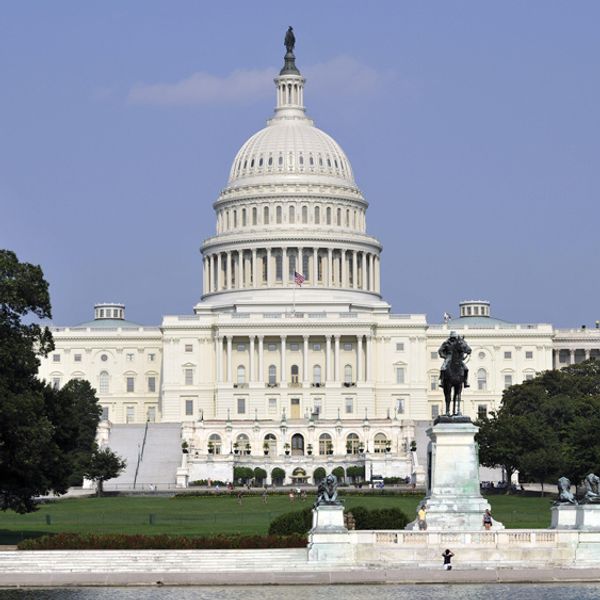There are fewer things more complicated and headache inducing than Copyright Law. It is system that is mired in fine print and technicalities that haven't been updated since the turn of the previous century making it difficult to understand and even more so to explain. But it is a system that artists depend on for their livelihoods, it is how we ensure that proper credit is attributed and compensated for the contributions they make to society. Without it large corporations who steal artwork for their clothing or producers who sample a song without paying royalties to the originator would not be held accountable. It may be complex but it is important to attempt to understand as an artist, or consumer of art, how this system and proposed changes to it could affect them.
Current music copyright law dates back to 1909 and it shows. Royalties were determined by wax cylinders sold and sheet music was licensed out to orchestras for performance. As it stands, the current laws were adapted and stretched over this pre-existing framework as the format we consumed songs changed through the twentieth century and for the most part it sufficed as long as people bought records, tapes, CDs. But the advent of the MP3 and music sharing sites like Napster entirely changed the game making it nearly impossible to control the dissemination of files once in the consumers hands and incredibly difficult to track statistics on. Distributors attempted to band-aid the pirating epidemic with various forms of Digital Rights Management, or DRM, that put virtual locks on purchased files so they couldn't be copied but this usually didn't make it any harder to download on Limewire. (For further reading on DRM and digital copyright I highly recommend Cory Doctorow's book Information Doesn't Want To Be Free which does a great job at explaining in easy to understand terms)
With the popularization of music streaming services it looked might be a fix that put rights management back in the hands of artists and creators who could now more easily self-publish and circumvent big record publishers who historically took a majority share of any royalties generated. Platforms like Spotify, Bandcamp, and Youtube offered creators a better chance to monetize there work and despite initial resistance from major publishers opened up their catalogs to streaming sites and companies like Apple and Google shifted their music platforms over to a streaming model. The industry has been following suit with the Billboard charts and Grammy's now factoring in data from streaming platforms for their award determinations.
So it makes sense that we are more than overdue for an update to music copyright law. Enter the Music Modernization Act that recently passed the US House of Representatives and is now up for vote in the Senate. The act aims to overhaul the rights attribution process by creating an artist run collective to deal with Apple, Spotify, and major publishers in a more streamlined process. The act had near unanimous support in the house and has been championed by many songwriters in the industry. It could be a radical shift in power in the music industry, potentially giving technicians and writers equal compensation for their work and offering overall more transparency and accountability when it comes to royalty rate determination by publishers.
Related | 100 Women Revolutionizing Pop
Things could be derailed by a company called SESAC which is owned by Blackstone Group, tacked on an amendment to the MMA that is being highly criticized by artists and songwriters alike. SESAC, which is a performing rights organization, would stand to lose a great deal of power under the proposed act as it stands. The Music Licensing Collective would circumvent SESAC by dealing with publishers directly. The attached amendment calls for the implementation of Certified Administrators that would act as middlemen between organizations like SESAC or Music Licensing Collective and publishers to negotiate royalty rates independently.
SESAC argues that this would make for a more competitive marketplace and allow artists and writers a choice of royalty managers. The Nashville Songwriters Association International, which has been a major proponent of the legislation as is and was one of the organization that helped to draft the Music Modernization Act, says that the amendment would undercut artists' negotiating powers and would inordinately favor Blackstone companies like SESAC and Henry Fox Agency, which handles mechanical licensing. The proposed third party system would instead be a return to business as usual with the Music Licensing Collective's ability to negotiate undercut by intermediaries who would have little oversight or accountability.
Reactions from artists and songwriters on social media have been overwhelming in their support of removing the amendment. Lori McKenna, Maren Morris, Steven Tyler, and writers who are represented by SESAC, have taken to social media to call for Blackstone to remove their amendment before it goes to a vote in the Senate. They are calling on others to voice their concern as well so that the legislation, which has enjoyed bi-partisan support in the House, doesn't end up dead on arrival. The Music Modernization Act would have been passed by the end of July before Blackstone Group submitted their proposal, further delaying the bill that has taken years to come to a vote. SESAC hopes to have their version of the legislation passed before the end of the year.
Concerned songwriters can contact SESAC by calling them at (615) 320-0055, email: licensing@sesac.com or tweet @SESAC to express your concern regarding their proposed change to the Music Modernization Act.
Photo via Rex/Shutterstock
